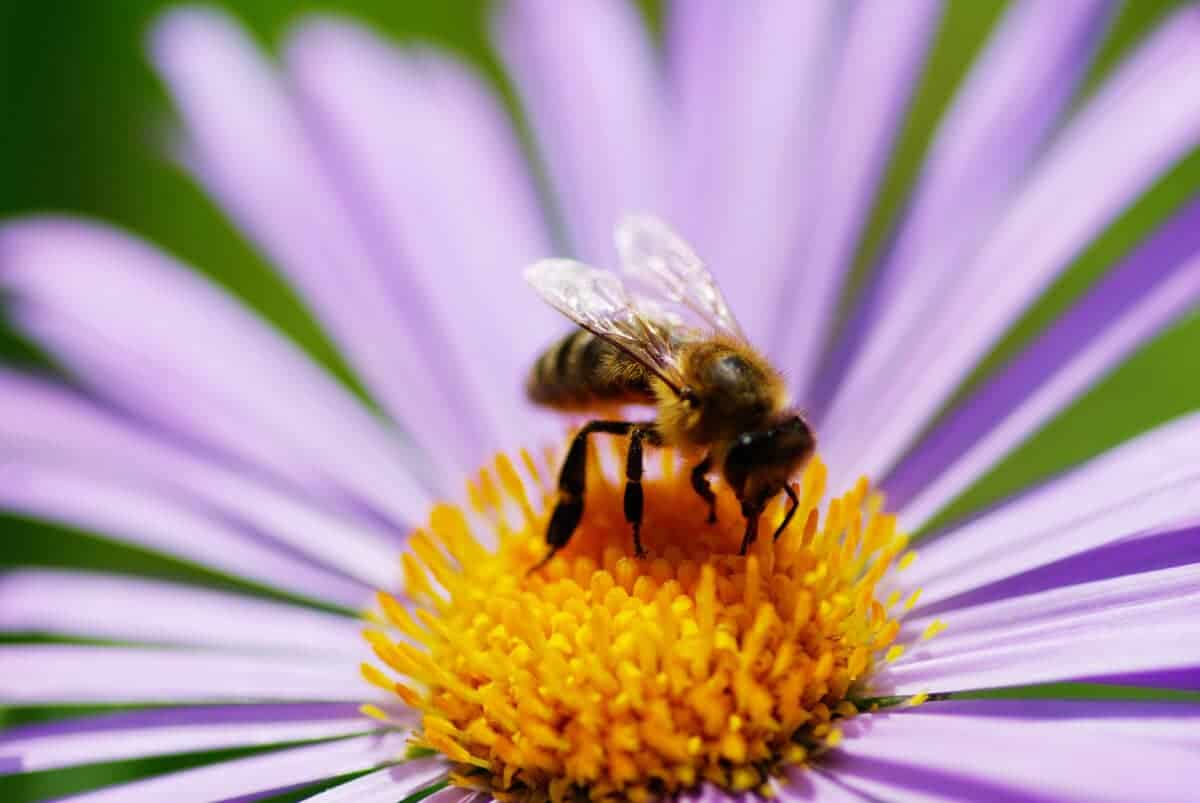From Tokyo to Trinidad and Tobago, theirs an abundance of bees worldwide, pollinating most, if not all, plants within its periphery. Small in stature but feared by many, their ability to transform ecosystems is unprecedented within the animal kingdom.

They play a pivotal role that extends far beyond their reputation as honey producers. These tiny, buzzing creatures are, in fact, unsung heroes, contributing significantly to the health of our planet. From pollination to biodiversity conservation and agricultural sustainability, this article explores the indispensable role that bees play in helping to save the world.
Pollination Powerhouse:
Bees are unparalleled pollinators, facilitating the reproduction of countless plant species, including many of the fruits, vegetables, and nuts that make up a significant portion of our diets. The process is simple yet essential: as bees visit flowers in search of nectar, pollen sticks to their bodies and is transferred from one flower to another, allowing plants to produce seeds and fruit. Approximately 75% of the world’s flowering plants and about 35% of global crop production depend on animal pollinators, with bees leading the charge. Without their pollination services, our food supply chain would be severely compromised.

Agricultural Symbiosis:
The agricultural sector, a cornerstone of human civilization, owes much of its success to the industrious work of bees. Crops like apples, almonds, blueberries, and cucumbers heavily rely on bee pollination to yield bountiful harvests. In fact, the economic value of pollination by bees is estimated to be in the billions of dollars globally. Farmers and agricultural industries benefit immensely from the services provided by bees, ensuring the continued availability of diverse and nutritious food sources for communities worldwide.
Biodiversity Guardians:

Bees are essential custodians of biodiversity, playing a crucial role in maintaining the balance of ecosystems. As they move from flower to flower, bees pollinating inadvertently transfer genetic material, promoting genetic diversity within plant populations. This diversity is fundamental to the resilience of ecosystems, as it enhances a community’s ability to adapt to environmental changes and resist diseases. Moreover, the presence of bees in an ecosystem is indicative of its overall health, as they are sensitive to environmental disturbances and their decline can serve as an early warning sign of ecological imbalances.
Medicinal Bounty:

The importance of bees extends beyond our plates and into the realm of medicine. Honey, a natural byproduct of bee activity, has been used for centuries for its medicinal properties. With antibacterial and anti-inflammatory qualities, honey has been employed in the treatment of wounds and respiratory ailments. Additionally, bee venom is being researched for potential therapeutic applications, including anti-inflammatory and anti-cancer properties. The symbiotic relationship between humans and bees is not just about sustenance; it also holds the promise of healing and well-being.
In the face of numerous environmental challenges, the role of bees in preserving the delicate balance of our planet cannot be overstated. From the pollination of crops to the conservation of biodiversity and the potential for medicinal breakthroughs, bees are true unsung heroes working diligently to save the world. As we continue to grapple with issues like climate change and habitat loss, it is imperative that we recognize and appreciate the vital contributions of bees, taking proactive steps to protect and preserve these invaluable pollinators for the well-being of current and future generations.

If you enjoyed this, you may enjoy these pieces:
Join our Forum for free today!

- Second American Killed by Elephant in Zambia This Year - July 22, 2024
- Elderly Man Kills Grizzly Bear in Montana - July 22, 2024
- Missing Cat Found Weeks Later, 40 Miles Away - July 21, 2024

